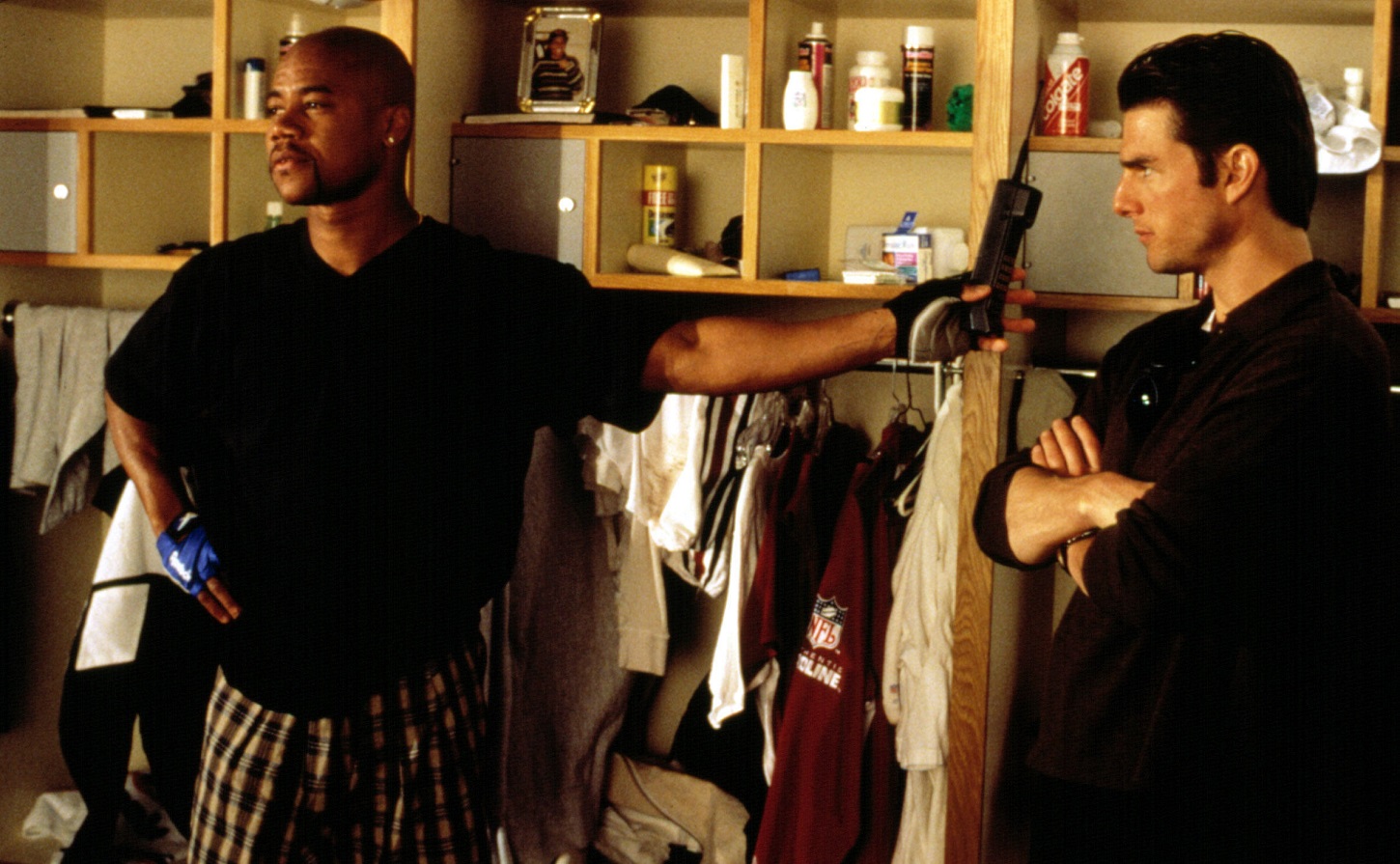It’s Broke – And Don’t Fix it

Subscribe to Catalyst
Subscribe to get our magazine delivered right to your inbox
Related Articles
Subscribe to Catalyst
Subscribe to get our magazine delivered right to your inbox
Related Articles
Showing Support Means Not Having All the Answers
Cuba Gooding Jr. as Rod Tidwell and Tom Cruise as Jerry Maguire from the 1996 film, which led to countless “help me, help you” memes.
A popular quote from the movie Jerry Maguire is, “Help me help you.” It comes from the scene where the namesake character, played by Tom Cruise, is coaching football player Rod Tidwell, played by Cuba Gooding Jr., who is digging in his heels and resisting advice. It’s a familiar exchange that you may recognize in yourself. I know I do. If I see someone in pain, I have the strong desire to jump in and “fix” what I believe to be the “problem.” Despite that desire, I have learned that support does not equal fixing. It’s not my job or your job to fix others.
Let’s start at the point where you have recognized a mental health “problem,” say with a loved one, colleague, or friend. Perhaps you see the signs and symptoms of a decline in their mental well-being, or else the person has told you directly that they are going through a mental health problem. In that moment, it can be tempting to think, “What has worked for me will work for them.” If that happens, it’s natural to want to try and fix things by giving advice on how to make it all better. You may even want to give them a toolbox full of fix-it things.
But there are good reasons not to do that.
“Effective support can also involve sitting beside someone — not speaking a word, simply being there while providing a safe space for them just to be.” —
SHOULDA, COULDA, WOULDA
First, it’s best not to assume we know how that person feels and what they should do. I often say, “Don’t let anyone “should” on you today, and don’t “should” on yourself. So, let’s get away from our preconceived notions of what the person should do.
Whenever I hear the word should, I try to consider where it’s coming from and what intentions are behind it. Who has the right to say what we should do anyway? Who are they to decide what is best?
The desire to fix by “shoulding” ignores other possibilities. What if they’ve already tried what worked for you and had little success? What if it’s the first time someone has really been a witness to their pain? What if they say, “everything is fine,” and go away? What if your timing isn’t their timing (excluding situations of imminent harm to themselves or others)?
A more helpful approach is focusing on how their behaviour is impacting the life they want to live. It’s better to build rapport and trust or encourage them to seek professional (or other) support than put them on your to-do list. They are not your project. And there’s no need to keep at them with questions such as, “Did you do what I told you to do?”
FEELING HUNGOVER
Another potential reaction to trying to fix things is having the person ignore you the next time they see you. Whenever that happens, we tend to blame ourselves: “Did I say something wrong?” “Did I overstep?”
I invite you not to take those thoughts on, since the person may in fact be experiencing shame, denial, or fear. When people disclose something personal and share their emotional pain, it usually leaves them feeling vulnerable.
It’s what I often refer to as the “vulnerability hangover.” They’ve just shared something that leaves them with a gaping emotional hole — that open, raw feeling. In such situations they may be having internal dialogues like, “They must think I’m weird or have a character defect” or “Maybe they don’t like me anymore.”

Yvette Murray
On top of the symptoms they may be experiencing, going through a decline in their mental well-being will affect their self-esteem and self-worth. Strong feelings of “I’m not good enough” or “There must be something ‘wrong’ with me” can rear their ugly heads.
As a psychotherapist, my training involved having to do my own inner work along with group work. One of the biggest “aha” and healing moments I had during that time was when I recognized pain in a colleague or mentor. In that moment I thought, “You mean, you feel this way, too?”
Such an experience provides hope, optimism, and comfort in knowing that someone is not the only one with such feelings. It helps them focus on how to feel better without the extra burden of what my good friend and mentor Janine Driver calls, “stinkin’ thinkin’,” the internal dialogue and self-stigma that can directly interfere with our healing journey.
KNOWING ME, KNOWING YOU
To truly support someone, “Help me help you” really is the best approach. How do we do that? The first step is asking them! For example, ask “How can I best support you?” “What do you think would happen if you did this or that?” “How can I support you today?” “What does help look like for you?”
You could also remind them of what worked for them before. Everyone of us has been through challenges. To overcome them, chances are we’ve used support systems, inner strength, perseverance, courage, and persistence. Reminding the person what they’ve previously come through can be helpful. When someone feels better, they tend to forget that.
Have you ever had a bad flu and thought to yourself, “I don’t know how I’m going to function in the next hour, never mind getting up and going to work the next day”? Fast forward a few weeks, and someone at the office reminds you, “Remember, you were off sick that week?” “Ah, I had forgotten ‘cause now I feel better.” By reminding someone what has helped them before, know that it could be the very thing that helps them now.
Effective support can also involve sitting beside someone — not speaking a word, simply being there while providing a safe space for them just to be. When I don’t feel good, having someone trying to make me feel good or change how I’m feeling can be counter-productive.
Having empathy is key, as American researcher Brené Brown says, while making sure not to jump in with “at least” statements: when someone tells you they are getting a divorce, for example, and you respond with something like, “Well, at least you got married.” Some might find such a comment funny, but it may not be helpful. A more empathetic response would be “Thank you for sharing that with me. Please help me understand what you are going through.”
Key aspects of supporting other people are listening and communicating non-judgmentally. Those things become a lot easier once you remind yourself, “It’s not for me to put my belief systems about how life ‘should’ be or how people ‘should’ act onto others. It’s their life and experience, not mine.” By connecting as an authentic fellow human being, heart to heart, and by really listening, you are going to provide excellent support.
For those that have a hard time receiving support, allow me to whisper in your ear, “know that helping you, helps me too!”
Photo: ©TriStar Pictures/Courtesy Everett Collection




